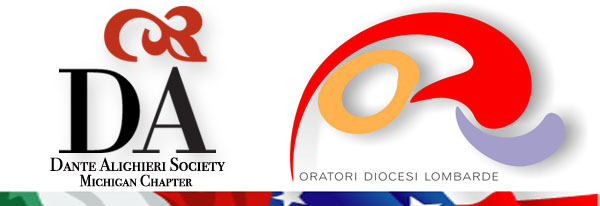What I have discovered with the program as I have spoken with various volunteers from other placement locations is that each placement has a completely different schedule and vary in their expectations of the foreign students.
I, and two other American college students, have been placed with the Grest in Mantova. We work with the older kids from ages 12 through 14. The program officially begins at 9:00 every morning and many days will only go until 12:30. Some days when we go to the pool or the forest (which has yet to happen due to rain but is schedule for the coming week) we may go until 19:30. There are pre- and post-Grest options for parents which means that they can always drop their kids off beginning at 7:30 and on regular days do not need to pick them up until 13:30.
Our daily routine usually begins with volleyball and soccer during the pre-Grest period. When everyone has arrived we begin with the dance routines created for the campers. Afterwards we split into our squadras (split into four colors: red, yellow, blue, green) then usually head to church for the daily prayer. After the prayer, we begin our first sports competition of the morning. At some point there is a break for a snack and then daily play is performed. Once done with the performance, the second competition of the day begins. Afterwards we all file back in to find out the placements of the teams and the points they have been awarded. These points are won in games but can also be lost when a squadra particularly misbehaves during announcements or performances. They are usually lost because campers have cheated during games. The competition is fierce between squadras and the camp counselors (animatori) sometimes contribute to the pressure to win on the kids, being sixteen and seventeen year-old kids themselves.
This is the routine for the Grest at Gradaro. When I spoke to other students I was told that some were schedule from 9:00 to 17:00. Others had certain days off every week. Yet others did not even have a third week because the kids were going on a retreat during the final week of the program. Some students had already had the opportunity to introduce English lessons into their programs while others did not even bring it up as a possibility.
I would not say this variety is necessarily a bad thing. The two most prominent things I have heard from most of the Voluntaritaly members is that they have a) found a wonderful host family who takes them to all of the local sites and introduces them to Italian culture and b) have had students asking them about English words and if they would be willing to practice speaking English with them. I think these two points are important to discuss. Yes, we are here to bring forth more of the English language to younger generations of Italians. Yes, it is very beneficial that they have native English-speakers in their summer program to expose them to the language. But I think that the first point, that these American volunteers have been exposed to the hospitality of Italy, have delved into another culture completely, is a very important one. As much as the students can learn from us, I think what this program truly offers is a chance for us to learn and reflect upon what others have to show and offer. There is such rich culture and history here in Italy that must be preserved through the sharing of food and of friendship.
Yes, it is important that we contribute in some way during our time here at Grest. But I think it is even more essential that we spend the majority of our time watching, listening and receiving, something possible at every Grest placement no matter how it is organized.


No comments:
Post a Comment